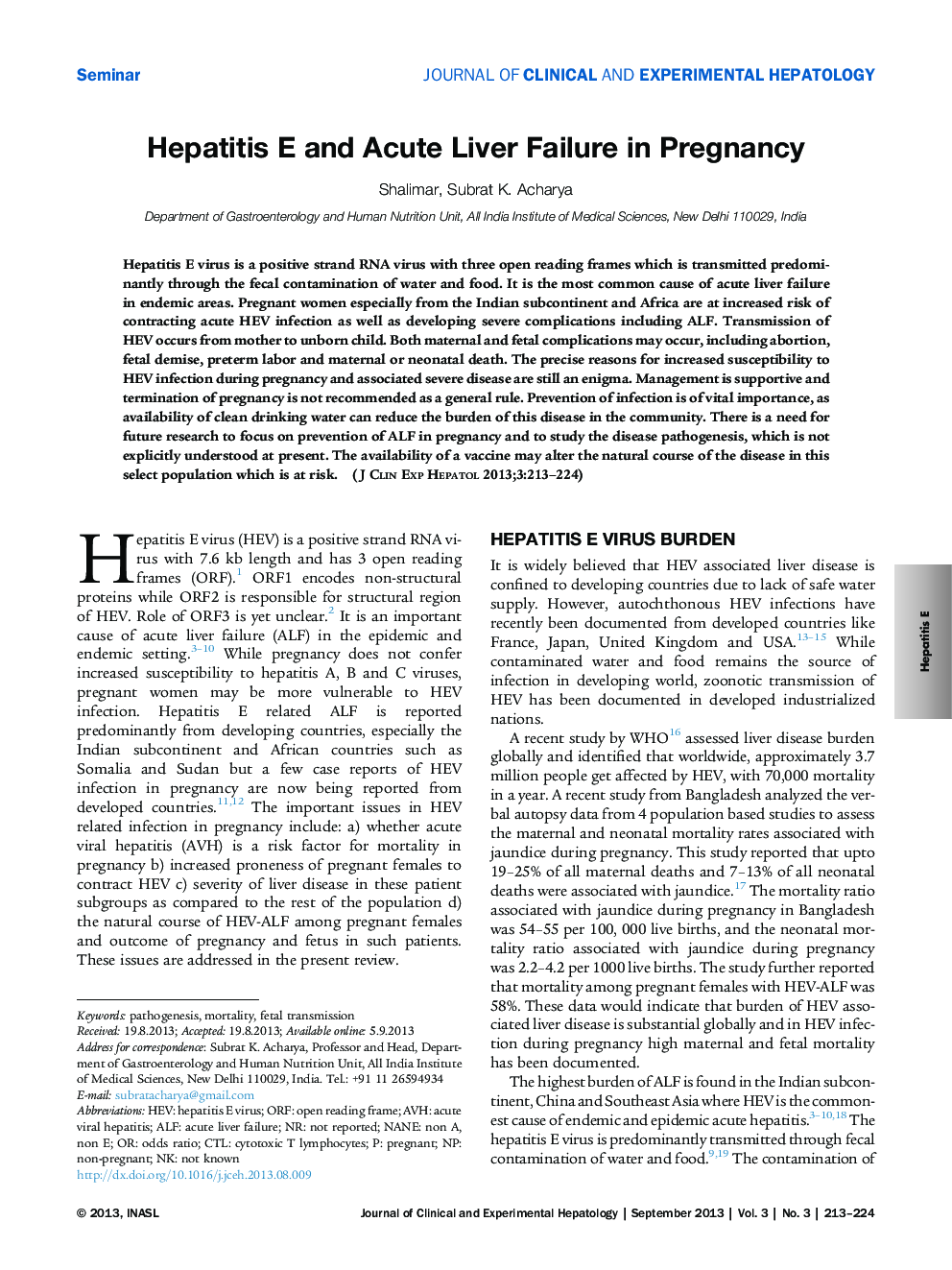| Article ID | Journal | Published Year | Pages | File Type |
|---|---|---|---|---|
| 3339131 | Journal of Clinical and Experimental Hepatology | 2013 | 12 Pages |
Hepatitis E virus is a positive strand RNA virus with three open reading frames which is transmitted predominantly through the fecal contamination of water and food. It is the most common cause of acute liver failure in endemic areas. Pregnant women especially from the Indian subcontinent and Africa are at increased risk of contracting acute HEV infection as well as developing severe complications including ALF. Transmission of HEV occurs from mother to unborn child. Both maternal and fetal complications may occur, including abortion, fetal demise, preterm labor and maternal or neonatal death. The precise reasons for increased susceptibility to HEV infection during pregnancy and associated severe disease are still an enigma. Management is supportive and termination of pregnancy is not recommended as a general rule. Prevention of infection is of vital importance, as availability of clean drinking water can reduce the burden of this disease in the community. There is a need for future research to focus on prevention of ALF in pregnancy and to study the disease pathogenesis, which is not explicitly understood at present. The availability of a vaccine may alter the natural course of the disease in this select population which is at risk.
